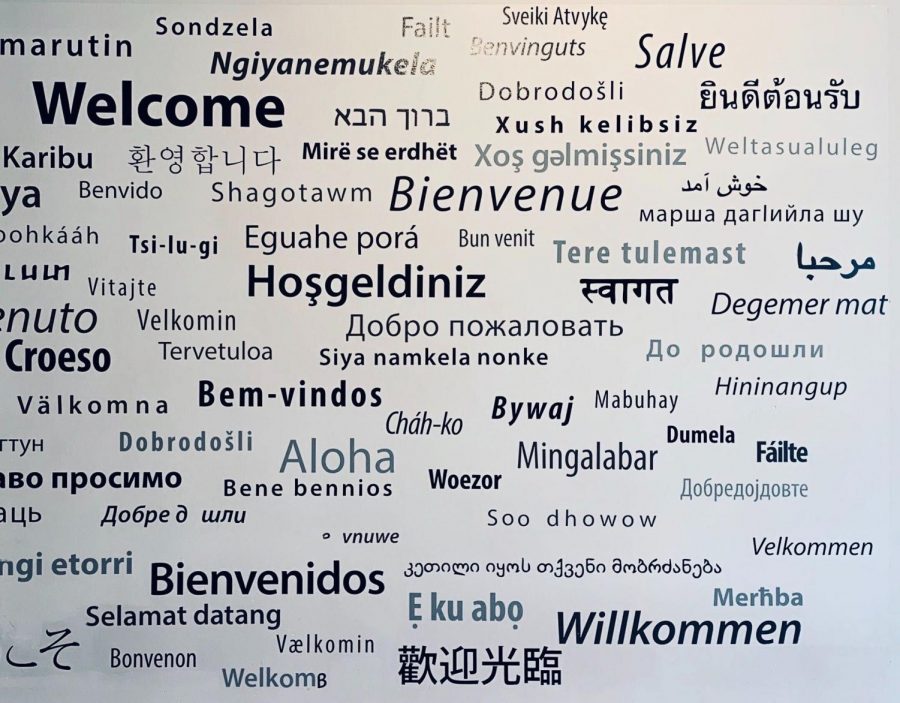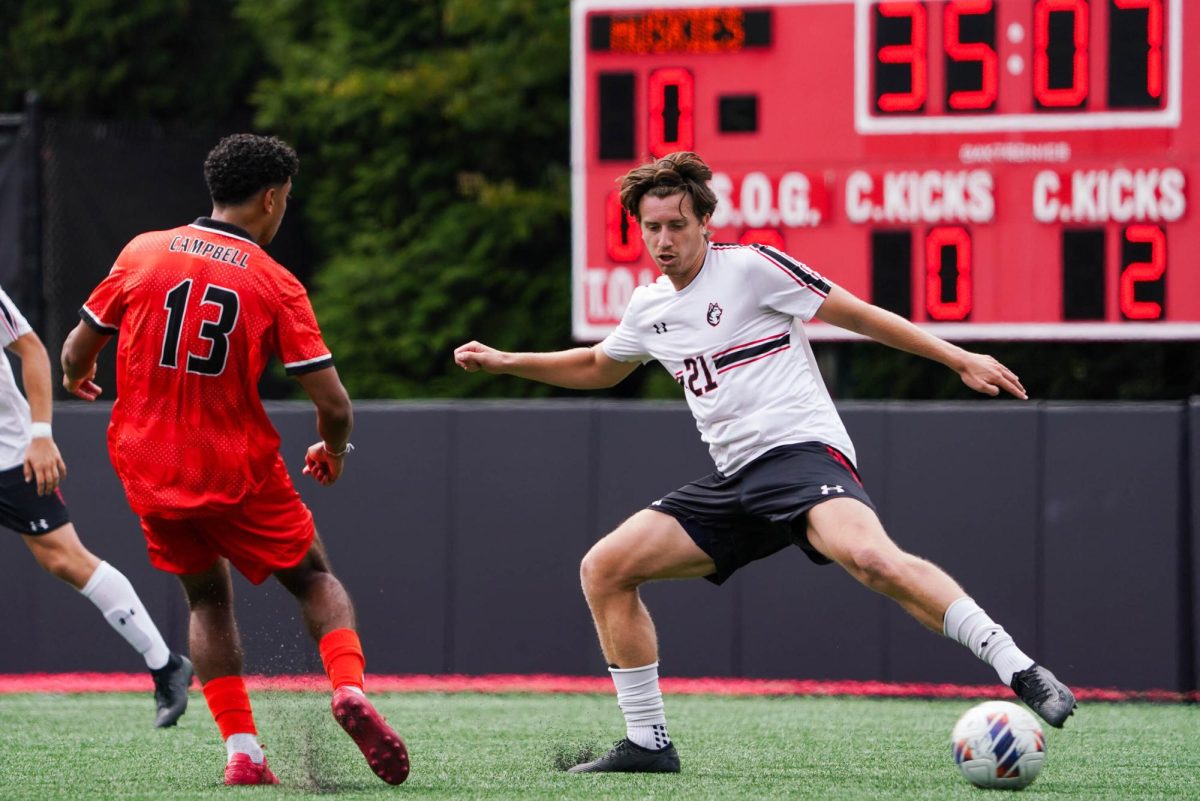The LANG Initiative provides translations of reopening documents, university resources to increase language accessibility
A wall in the Office of Global Services depicting a greeting in numerous languages.
September 9, 2020
As Northeastern pushes out new information regarding reopening, testing plans and housing, some information — written solely in English — goes misunderstood. To increase language accessibility on campus, a group of students formed The LANG Initiative to provide translations of university documents, protocols and resources.
In late June, Northeastern’s Asian American Center held a virtual discussion titled “History Repeats Itself: Yellow Peril,” where they discussed the uptick in incidents of racism toward Asian Americans and Pacific Islanders with the onset of COVID-19. One panelist, Jay Wong, who is the program director for the Asian American Commision, discussed the importance of language accessibility.
Professor Hua Dong, one of the moderators of the discussion and a faculty advisor for The LANG Initiative, described the panel as a way to share experiences of racism and discuss coping strategies.
“At the event, we all [talked] about the experiences of racism and positive role models that have exhibited themselves from the community,” said Dong, who is also interim director for Asian Studies and coordinator of the Chinese program.
The panel immediately struck a chord with Abbie Sedillos and William Fleming, two students who, after hearing the value of language accessibility from Wong and consulting with Dong, decided to create The LANG Initiative.
“The project we are doing now [is] to translate all of these very important documents and make them available to the community especially [for] those parents who don’t speak English well,” Dong said. “I think it’s crucial to help our students and to make them get [the] full information.”
The LANG Initiative, which stands for Language Accessibility of Northeastern Guidelines, is an entirely student-run initiative, assisted by faculty, that translates university documents from English into a variety of different languages, including Spanish, Chinese, Hindi, Vietnamese, Bengali and French. Most translators are native speakers, Sedillos said, and each translation goes through a rigorous editing process before being finalized.
However, the ultimate goal, according to their mission statement, is “to have these translations on Northeastern University’s official websites, and create a system where Northeastern — with student involvement — translates future website information into the major languages spoken on campus.”
While their goal seeks to work in unison with the university, The LANG Initiative is still completely separate from Northeastern.
“We call ourselves a global university,” Fleming said, “but we are not really backing that up by [not] having language translations and language accessibility available on our website.”
Throughout the summer, progress with Northeastern was stagnant.
“We’ve been in talks with [The Office of Global Services] since the end of July, and [it] has not really gone anywhere,” said Fleming, who is a first-year graduate student studying security and resilience studies. “However, they are not completely against the idea –– their hesitations are geared towards credibility, officiality [and] whether we can keep up with translations, when the current official information is changing on the website.”
As of Sept. 4, Fleming said an agreement was reached between Northeastern’s Vice President for Communications Renata Nyul and The LANG Initiative, where OGS will provide an official website for their translations of official university announcements.
OGS expressed support for The LANG Initiative in an email to The News.
“The LANG Initiative is a great student-led initiative, and OGS will work with them on making their translations available on the OGS website,” they wrote.
Prior to Sept. 4, Sedillos pointed to three areas of concern that explain OGS’ initial hesitation with this project: accuracy, speed and bureaucracy.
For the first concern, accuracy, she said that if OGS ever posted The LANG Initiative’s translations, they would want professional translators to review them.
“We’re pretty confident in all of our translations because we have a very extensive editing process that we go through for each translation,” Sedillos, third-year political science and environmental studies combined major, said.
Speed was their second concern, but The LANG Initiative stays on top of the updates and adjusts accordingly, so Sedillos believed this concern was invalid, especially since information like testing plans, reopening updates and move-in information was nearly finalized. Also, student project managers help with pacing and rapid translation, and they also facilitate communications between translators and faculty, Dong added.
“The language documents we chose to translate [were] based on the necessity of those documents. We [had] a first wave and a second wave,” Dong said. “Our first wave handles a lot with the reopening plans for Northeastern University, and the second wave handles a lot with [University Health and Counseling Services] resources, mental health resources, NUPD and Title IX.”
Lastly, Sedillos said that bureaucracy was a major obstacle during the summer, especially as the university prepared for the fall.
“The real issue is bureaucracy and the amount of time it would take for [Northeastern and OGS] to organize themselves and get this going,” Sedillos said. “Also, they don’t see it as super important because of the [COVID-19] pandemic.”
Because Northeastern also has such a large body of international students, translating these documents into other languages, Fleming said, is of paramount importance. In fact, as of last December, the university rose to third in the nation for highest international student population.
Ultimately, while the current focus of The LANG Initiative is to translate current documents regarding reopening, testing and housing, Fleming and Sedillos agreed that this initiative goes beyond the pandemic.
“We want translations for any emergency, medical or mental health issue that some student may have,” Sedillos said. “It needs to be translated, so that they can get involved and know what resources [exist], so that their parents or family members have the opportunity to look at those resources and help their student.”
Matt Yan can be reached at [email protected] and on Twitter @yanmatt0.







